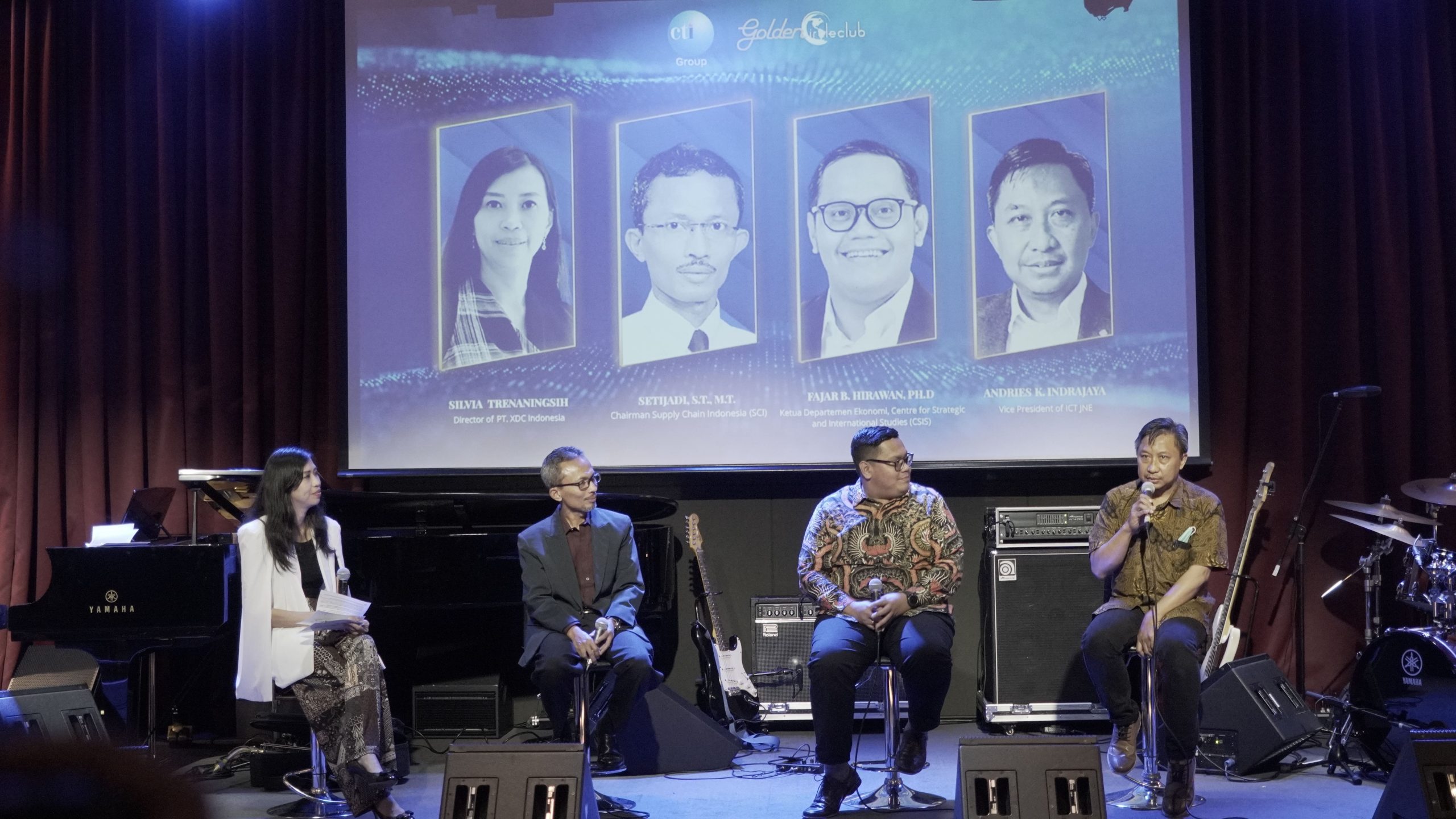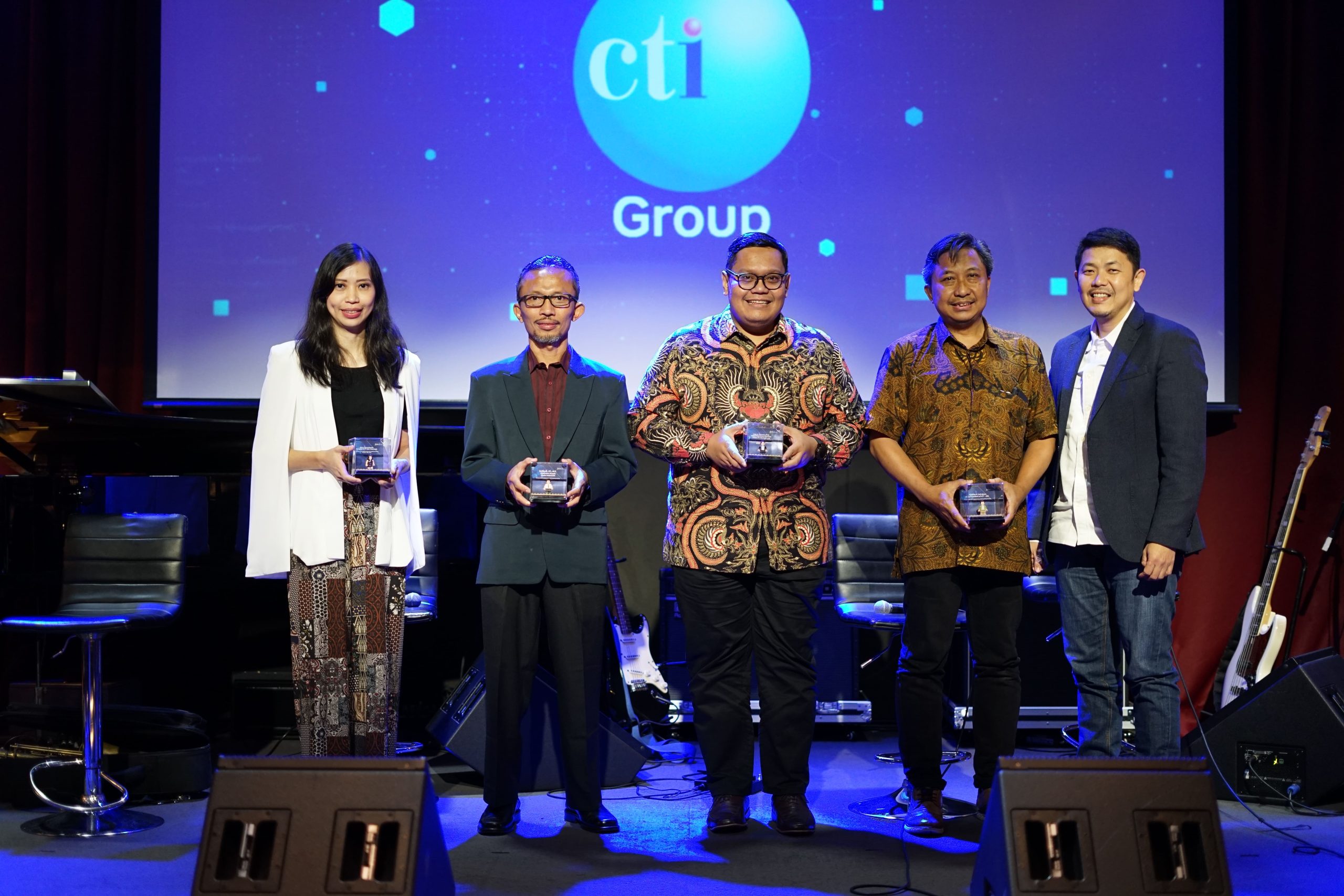Computrade Technology International (CTI Group) held the Golden Circle Club 2022 on Thursday, October 13, 2022. At the event, GCC invited Fajar B. Hirawan as Head of the Economy Department of CSIS, Setijadi as Chairman of Supply Chain Indonesia (SCI), and Andries K. Indrajaya Vice President of ICT JNE with the topic “Getting Ahead of Global Disruption Mitigating Business Turbulence of Operation Systems”.
In the GCC 2022, economic experts shared their insights and experiences in dealing with the impact of the global economic crisis in 2023 which disrupted supply chains globally, particularly in the IT industry, one of the industries highly dependent on export and import policies.
Therefore, for those of you who are directly involved in this industry, it is important to anticipate and understand how the economic crisis can impact the supply chain of the IT industry. In full, see the following article.
The Impact of Supply Chain Caused by Global Economic Crisis

Since the beginning of the pandemic, there have been difficulties in importing industrial capital raw materials and limitations in the flow of goods.
Fajar B. Hirawan claimed that this world is an interconnected world. If a disruption occurs, such as politics or security, it will also have an impact on other countries around the globe. This has an impact on the economic slowdown in countries that adopt a protective nature towards domestic products.
The decline in the supply chain of more than 60 percent was based on Indonesia, which is indeed a country that relies on imports and exports which declined only about 20 percent. The payment system between sellers and buyers is also developing in the face of the global crisis, and this has led to an increase in cashless payment platforms.
Innovations for IT Industry to Adapt to the Global Supply Chain

Indonesia in terms of logistics and global supply chain is still constrained by various things, such as regulations, infrastructure, human resources, and bureaucratic transparency. This is very influential on the policy of the IT industry sector, which plays a major role in innovation to manage the productivity of the Indonesian state through the logistics sector by sea and land.
Fajar added that Indonesia as a country that has a large number of manufacturing warehouses and fleets has the potential for IT innovation to develop further. Because to manage a lot of resources, IT technology is needed which is important to improve and speed up the accuracy of the picking rate process from the supply chain.
The problem of economies of scale related to commodity goods has also become a development, in which making a delivery does not just require a fleet and warehouse. However, logistics companies also need consolidation with IT capabilities to access and filter data owned by logistics companies.
Therefore, IT must map supply and demand, especially, since it is said that we are very weak in the big data process and data cannot be collected or managed if we do not use IT.
3 Implementations of JNE IT Technology in Seeking Logistics Business Opportunities

As one of the largest logistics industries in Indonesia, Andries K. Indrajaya said that the JNE company is still in the process of adapting and looking for solutions to this disruption, this is based on the fact that JNE is the only logistics industry that operates as a network company.
The first technology that JNE uses as a network company is that they can partner with anyone to become bigger. With a network company that already has more than 8.000 partners, and almost 9.000 branches spread throughout Indonesia, a reliable and controllable system is needed to maintain standards and so that this partner community can build an ecosystem that can withstand the global economic crisis.
Second, based on data, JNE still handles a lot of Cash on Delivery (COD), where microeconomic entrepreneurs still use the cash more often than digital ones. This creates a high market potential in helping MSME players take to deposit money into an ATM and put it into the owner’s account. To be able to adapt to this potential, technology support and machines that are connected to various banking systems are needed.
The third technology implementation is that JNE requires a digital platform that can calculate shipping costs with a variety of different services and can count the hours of delivery until it reaches the buyer. This is to ensure that the specified SLA is successful, so technology support is needed, namely in addition to the use of a data center, hybrid cloud for faster data access, and also an automated sorting system.
Read more: Struggle of the IT Industry: The Global Crisis and Its Impact on the Supply Chain
Golden Circle Club (GCC) 2022 Summary

It can be concluded that the impact of the influential economic crisis can cause a global economic recession, although it is believed that the Indonesian economy can still survive in 2023, with the possibility of slowing down instead of a recession, and for supply chain developments that are still strong with growth in Q1 to Q2 of 2022.
For IT industry players, there is no need to worry about facing and avoiding mitigation from the global economic recession, because IT will be very much needed in the process of recovery and development from the economic crisis. The most important thing is that the IT sector continues to be able to innovate and be able to train and find better human resources.
Writer: William Wong
Content Writer CTI Group

